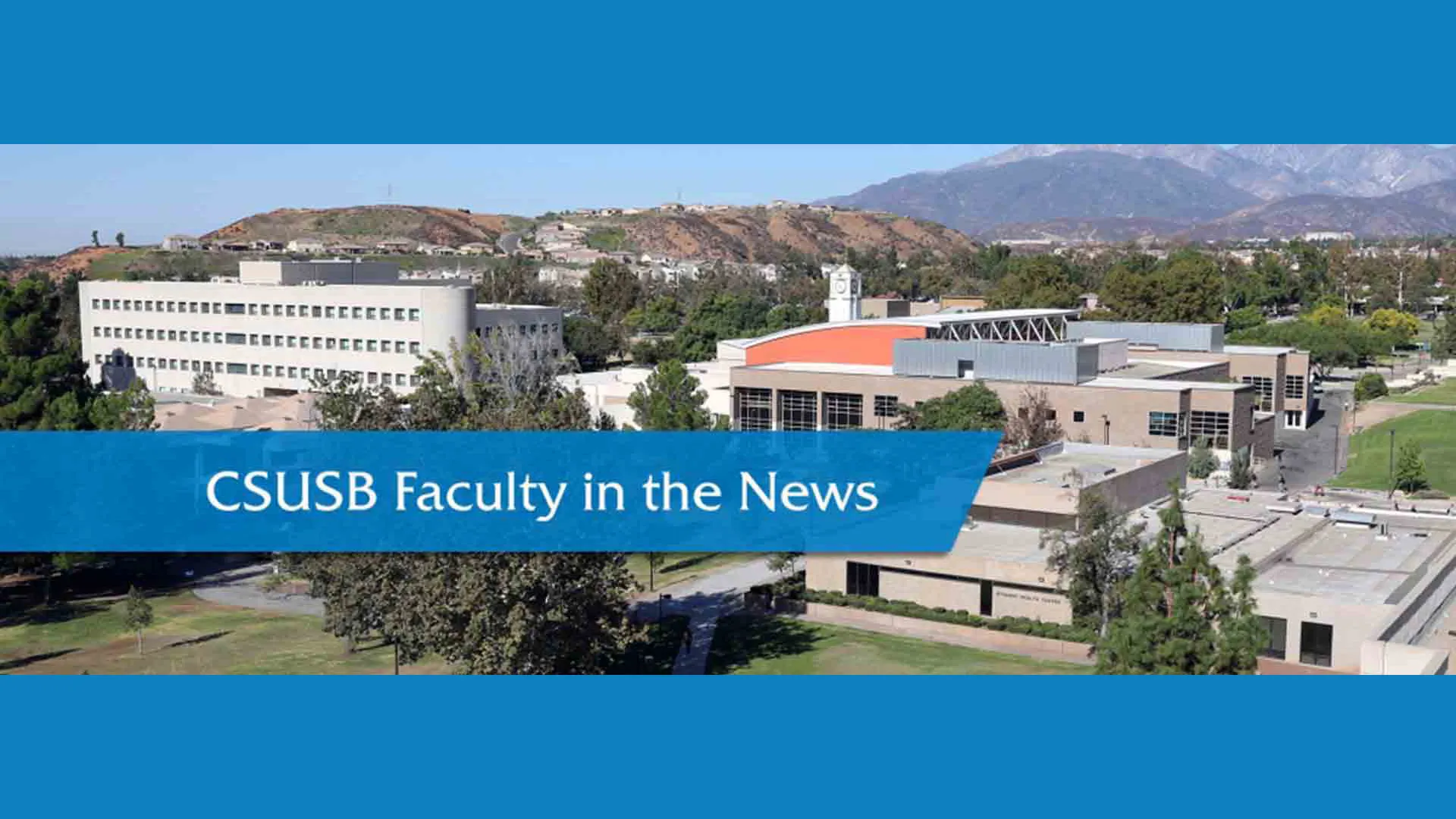NOTE: Faculty, if you are interviewed and quoted by news media, or if your work has been cited, and you have an online link to the article or video, please let us know. Contact us at news@csusb.edu.
Brian Levin, Cal State San Bernardino professor, discusses America's epidemic of hate crimes
Here & There with Dave Marash
April 13, 2021
The director of the university’s Center for the Study of Hate and Extremism was a guest on the show hosted by Dave Marash to discuss the growing incidents of hate crimes in the United States. One of the topics of discussion was the shifting demographics as the country as a whole becomes more racially, ethnically and culturally diverse, and how some segments of society, typically white males, are reacting to the change.
Listen to the podcast at “Brian Levin, Cal State San Bernardino: America's epidemic of hate crimes.”
‘Adults in the room’ should step up when political rhetoric is based on falsehoods and leans toward inciting violence, CSUSB professor says
The Fresno Bee
April 14, 2021
In an editorial: “Creating falsehoods and repeating them while engaging in belligerent behavior is now commonplace in American politics, said a professor who specializes in the study of extremism.
“‘At a time when we’re seeing escalating threats against public officials, the adults in the room should say, “Some things are legitimate and some types of calls for violence, depictions of the governor as a Hitlarian Nazi, and use of conspiracy theories are off the table.” So says Brian Levin, the director of the Center for the Study of Hate & Extremism at California State University, San Bernardino.
“‘But you won’t hear that,’ he adds, ‘because unfortunately, in today’s coarse and fact-limited political world, it’s all about making waves and less and less about facts.’”
“Fresno’s infamous anti-masker professes to love freedom, but he’s really just a loud bully.”
‘White Lives Matter’ rallies fizzled. Hate groups still see chance to ‘fire up the base’
Los Angeles Times
April 14, 2021
When white nationalists failed to turn out in threatening numbers Sunday at a Huntington Beach rally, many counterprotesters viewed it as a victory. Yet those who track extremist movements, including Brian Levin, director of CSUSB’s Center for the Study of Hate and Extremism, say that the truth is more complex and troubling.
A wide mix of people show up at events such as Sunday’s rally, said experts. Some are toying with the idea of joining radical groups, some want to see what it’s about, and a third type want their views to be heard about a changing world they don’t understand or are not comfortable with, said Levin.
“There are some people who show up knowing exactly what’s going to be in the cereal box,” Levin said, “and there are others who are teetering and still others who are Nazi-adjacent. All these people want to be heard, but the direction and depth of their prejudices are not homogenous.”
Generating publicity is the main goal of these rallies, he said. The groups also want to demonstrate their relevance and recruit new members.
“With these kinds of rallies, even when they fizzle, they offer a high degree of publicity, which is part of the oxygen these groups need,” Levin said. He added that “it also shows how impotent and irrelevant they are, not only with people on the mainstream, but also people on the extreme who think they’re doing it wrong.”
‘White Lives Matter’ rallies fizzled. Hate groups still see chance to ‘fire up the base’
The CSUSB Center for the Study of Hate and Extremism’s latest report on hate crimes against Asian Americans was cited in the following:
What constitutes a hate crime in California? What doesn't? Here are the basics
LAist
April 13, 2021
Since the beginning of the pandemic, the rise in hate crimes and incidents targeting the Asian American community has made national headlines and sparked widespread discourse.
Last month, the Center for the Study Of Hate & Extremism at Cal State San Bernardino reported a 145% increase in hate crimes targeting Asian Americans across America's 18 largest cities between 2019 and 2020, in a study that analyzed police data.
Cleveland Indians infielder hit with Anti-Asian abuse after committing error
Forbes
April 13, 2021
Yu Chang, a Taiwanese infielder for the Cleveland Indians, said Tuesday that he was the target of online racial abuse after committing an error in Cleveland's loss Monday night.
BIG NUMBER: 149%. That's the year-over-year percentage increase in anti-Asian hate crimes reported to police in major U.S. cities in 2020 (while hate crimes overall fell by 7%), according to the Center For the Study of Hate and Extremism at Cal State San Bernardino.
We need to do more to combat anti-Asian hate crimes
Asia Times
April 14, 2021
Recently released hate crime figures showing that anti-Asian hate crimes in the US rose by 149% in 2020 – a 50% increase since 2019 – is a call to action to do more to protect people of Asian descent in the United States.
These troubling figures point to a reality that not enough is being done by the broader American public to take anti-Asian hate crimes seriously.
According to the Center for the Study of Hate and Extremism at California State University San Bernardino, anti-Asian hate crimes have risen by 115% in Los Angeles county, while more than 800 Covid-related anti-Asian hate incidents took place statewide from March to May, 2020, according to the Asian Pacific Policy and Planning Council.
Among the most populous US cities, New York saw the largest annual increase in anti-Asian hate crimes reported to police in 2020.
These news clips and others may be viewed at “In the Headlines.”
